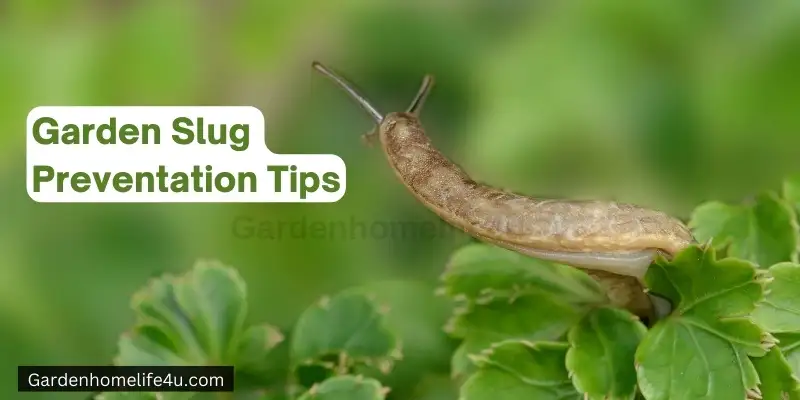There’s nothing quite as disheartening as waking up to find your once-thriving garden devastated by slimy intruders. But worry not, as this comprehensive guide is here to arm you with the knowledge and strategies needed to keep slugs at bay and protect your precious plants. In this journey, we shall describe a variety of tried and tested slug-prevention secrets that will help you create a slug-proof fortress for your garden. From natural remedies to physical barriers, we will explore a range of effective techniques to deter slugs and safeguard your plants from their voracious appetite. So, let’s uncover the secrets that will keep your garden thriving and free from the relentless ravages of slugs.
Slugs and snails are the scourge of gardeners everywhere. They can ruin your plants, but they’re also just gross. Luckily, there are many ways to keep them out of your garden that is safer than using chemicals or dangerous slug baits. From using copper as a barrier to scattering coffee grounds around the base of your plants, these tips will help keep these slimy pests away from your garden for good!
Average slugs and snails in the garden and where do they live? 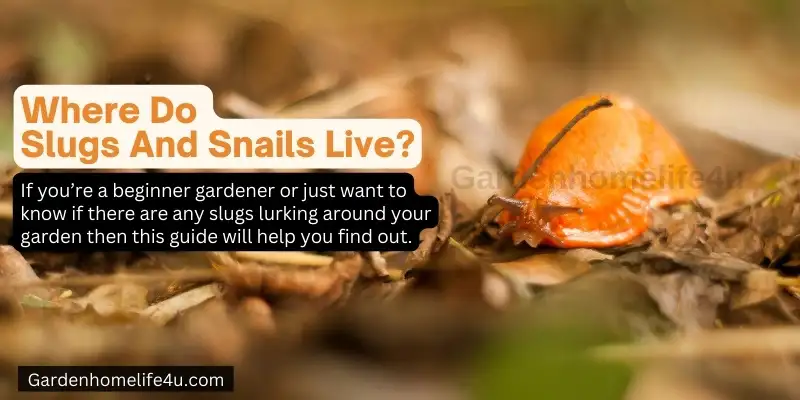
Slugs and snails are common garden pests. They eat your plants, lay eggs in them, and can even spread diseases. If you’re a beginner gardener or just want to know if there are any slugs lurking around your garden then this guide will help you find out.
Slugs and snails are gastropods (aka molluscs). A gastropod has a single shell on its back with a head at one end, an anus at the other end, and tentacles on top of the head. They have eyes but they don’t have ears so they can’t hear very well either! Slugs lay eggs that hatch into baby slugs – these babies are known as larvae or juveniles.*
- To learn more about how many eggs each species will lay click here
Slug & Snail Species:
There are over 10 different species that live in gardens including; the brown garden slug (Arion rufus), grey field slug (Deroceras reticulatum), horsehair slug (Limax flavus) and banana slug (Ariolimax columbianus). The best way to tell an adult from its young is by looking for stripes running down their backs – these aren’t present on juveniles so if you see some without stripes then chances are they’re adults!
What and when do they feed on? 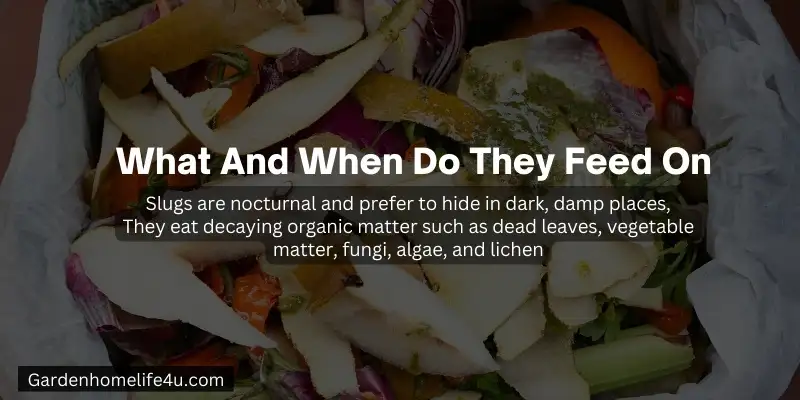
Slugs are nocturnal and prefer to hide in dark, damp places. They eat decaying organic matter such as dead leaves, vegetable matter, fungi, algae, and lichen. They also eat the roots of plants and can cause damage to trees by eating them away at their base. Slugs also eat the eggs of birds and small mammals (such as mice), which is why you should always check your garden for these animals before planting new things!
Slugs are hermaphrodites (they have both male and female organs) so they can lay up to 2,000 eggs at once – it’s possible for a single slug mother to produce over 3 million offspring within a year! Some slugs are known to live up to 7 years in captivity
Do they carry parasites? 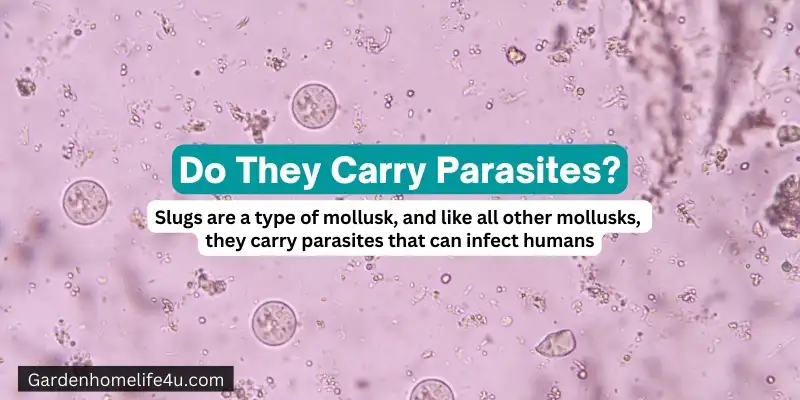
Slugs are a type of mollusk, and like all other mollusks, they carry parasites that can infect humans. Slugs also carry parasites that can infect other animals. They can carry parasites that can infect plants. And they can carry parasites that can infect other slugs!
Slugs like to live in damp places or even in shady spots—it’s the humidity and darkness that keeps them safe from predators—but you may find them out in the open during daylight hours when it’s warm outside (or after a rain shower). They’re most active at night though: they like to come out at dusk when it gets dark enough for them to hide easily but not so dark as to be dangerous; however, in cooler climates, this means being nocturnal year-round rather than just during warmer months when most gardeners are gardening anyway.
Disadvantages of using slug pellets 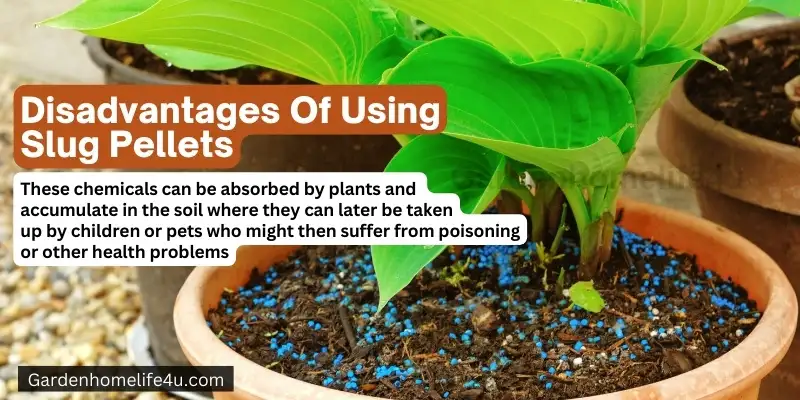
Slug pellets are not very effective. They don’t kill the slugs, but only deter them for a short time. These chemicals can be absorbed by plants and accumulate in the soil where they can later be taken up by children or pets who might then suffer from poisoning or other health problems. Slug pellets are also expensive, especially if you use them frequently as part of your garden slug control strategy.
They’re also not environmentally friendly because they can contaminate groundwater and harm wildlife that eats them (particularly birds). For this reason, many municipalities have banned their use altogether—a practice that’s likely to become increasingly common in years to come as more people realize how harmful these chemicals can be to both humans and other animals alike!
Slugs don’t like sharp edges. 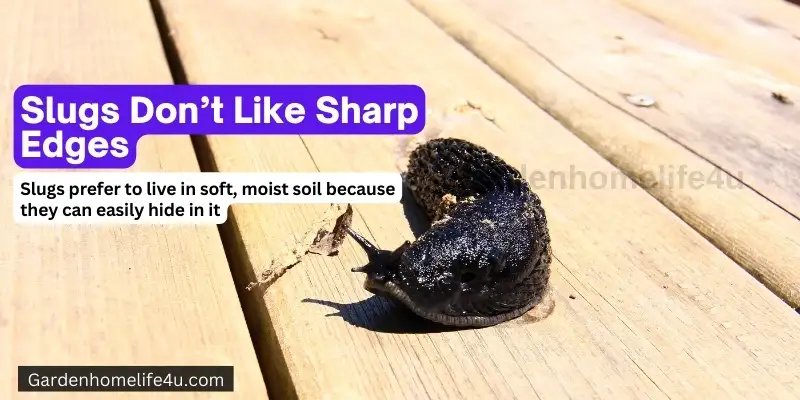
Slugs prefer to live in soft, moist soil because they can easily hide in it. They also like dark places, so removing all the plants and mulch from your garden will help to discourage them from hanging around. If you have any sharp edges in your garden that could cut into the skin of slugs or their slime trail, you should try to remove these as well.
You can use copper as a slug barrier. 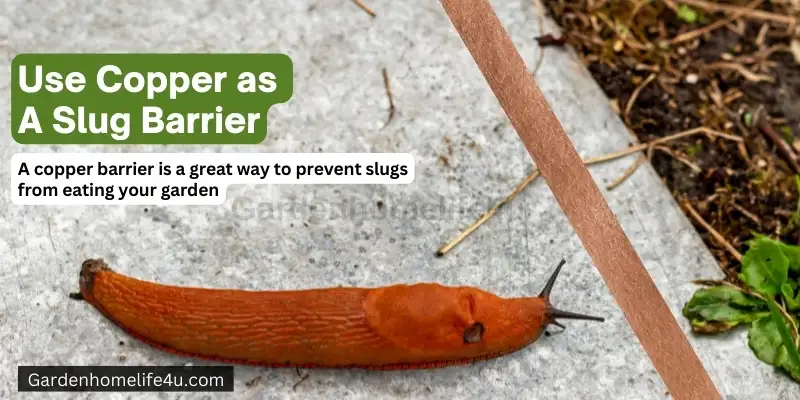
A copper barrier is a great way to prevent slugs from eating your garden. They’re not attracted to copper, so you can use it as a barrier around your plants. You can buy copper tape or wire, which is flexible and easy to apply.
Slugs love everything in your garden—from seedlings to flowers and vegetables. If you want to protect your plants from the damage caused by these pests, consider using copper as a slug barrier.
Slugs can’t tolerate heat at all.
Slugs are far more active during cooler weather, and if you live in a climate where it is hot, you will want to take measures to keep them away. They can’t tolerate the heat at all.
Slugs are also most active at night and when it rains, so be sure to check your plants after dark. If there’s one thing we’ve learned about slugs over the years, it’s that they’re sneaky little guys who like to hide during the day and come out at night (or on cloudy days).
Salt to Control Slugs 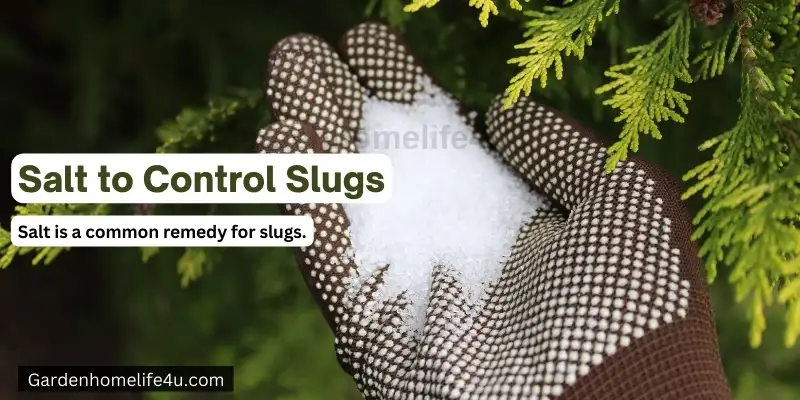
Salt is a common remedy for slugs. One tablespoon of salt will kill 20 slugs, and it’s easy to find in most grocery stores.
The amount of time it takes for salt to work depends on the type of soil you have in your garden. In sandy soil, the salt breaks down quickly and stops working after about 10 days. In clay soils, the salt may take up to two months before it stops working. Once you start using salt on your plants, don’t use any other products that contain chemicals or pesticides until after their soil has been rehydrated by rainwater or irrigation water.
When applying the salt directly onto plants (which may damage them), spray the plant with water first so that all of the surfaces are wet before applying the salt with a spreader or watering can nozzle attached with an extension tube
Coffee grounds are a great slug repellent. 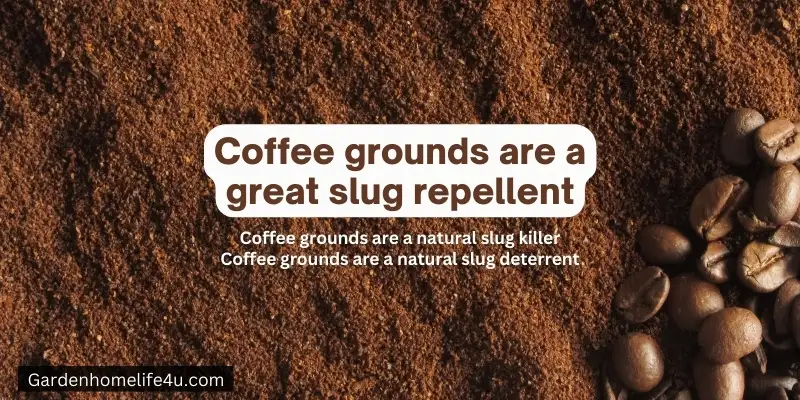
Coffee grounds are a great slug repellent. Coffee grounds are a natural slug killer. Coffee grounds are a natural slug deterrent. Coffee grounds are a natural slug repellent, but they’re also great for your garden soil in general, so if you’ve got some coffee left over after making your morning cup of joe and want to give it another life, try mixing it into your compost bin or using it as mulch around the base of plants in your garden!
The smell of mint deters slugs and snails.
The smell of mint deters slugs and snails. The best part? You can use it in the garden, or you can use it in the house. Mint is a natural repellent that works on many kinds of pests including snails, slugs, ants, and beetles.
To use mint as a slug repellent:
- Plant mint around your plants or containers to keep them away from the leaves by making their home somewhere else!
- Make sure that any cuttings are placed far enough away from other areas so they don’t spread their little pests everywhere!
Ash is a natural slug killer. 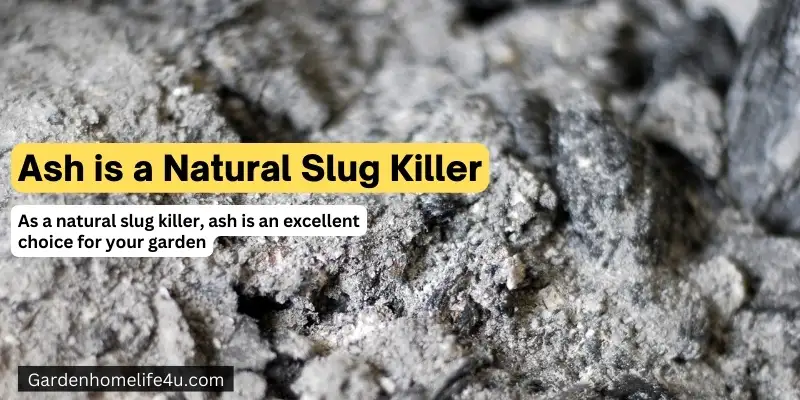
As a natural slug killer, ash is an excellent choice for your garden.
Here’s why:
- It’s toxic to slugs. It can be eaten by slugs but not digested, which leads to their death by starvation.
- It acts as a barrier against slugs. Slugs do not like walking on top of the dry ash because it creates friction and slows them down, making them easier to capture and kill with your homemade slug trap! This also works for snails because they cannot pass over the dry ash without sliding off into their doom!
- Its strong scent doesn’t appeal to many insects so you don’t have to worry about harming beneficial bugs (unless you decide to use the ashes from burned wood or cigarette butts instead!). However, if there are too many barriers between your plants and pests then this could actually cause more harm than good by preventing necessary nutrients from reaching them – make sure there aren’t any unnecessary obstacles between where you’re growing things so that everything has access to sunlight(or whatever source keeps them alive).
There are lots of ways to keep slugs out of your garden that is safer than using chemicals or dangerous slug baits. 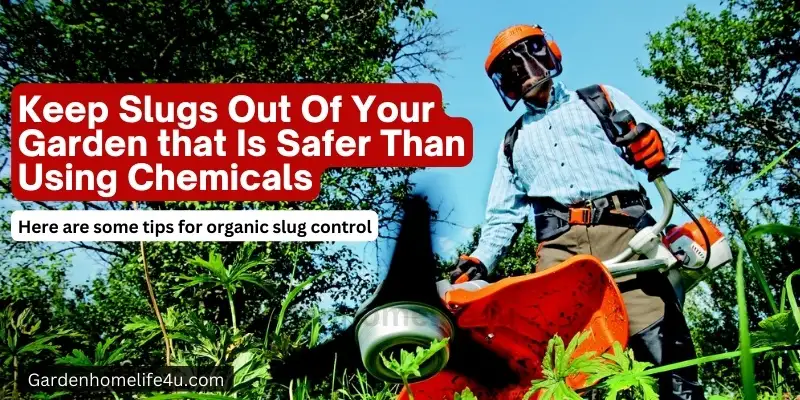
There are lots of ways to keep slugs out of your garden that is safer than using chemicals or dangerous slug baits. Here are some tips for organic slug control.
- Moisture is a big draw for slugs, so make sure you’ve got good drainage in your garden beds. If there’s too much water, they’ll move in and take over!
- Slugs don’t tolerate heat very well—they can’t get enough oxygen through their skins, so they stay inside where it’s cool and moist during the summer months. If you see a lot of them around when it’s hot outside (in July or August), try moving your pots indoors or covering them with plastic wrap until fall comes around again. This will protect the plants from being eaten by slugs throughout the growing season as well as keep them from chowing down on tender new growth during springtime when everything is growing faster than ever before!

